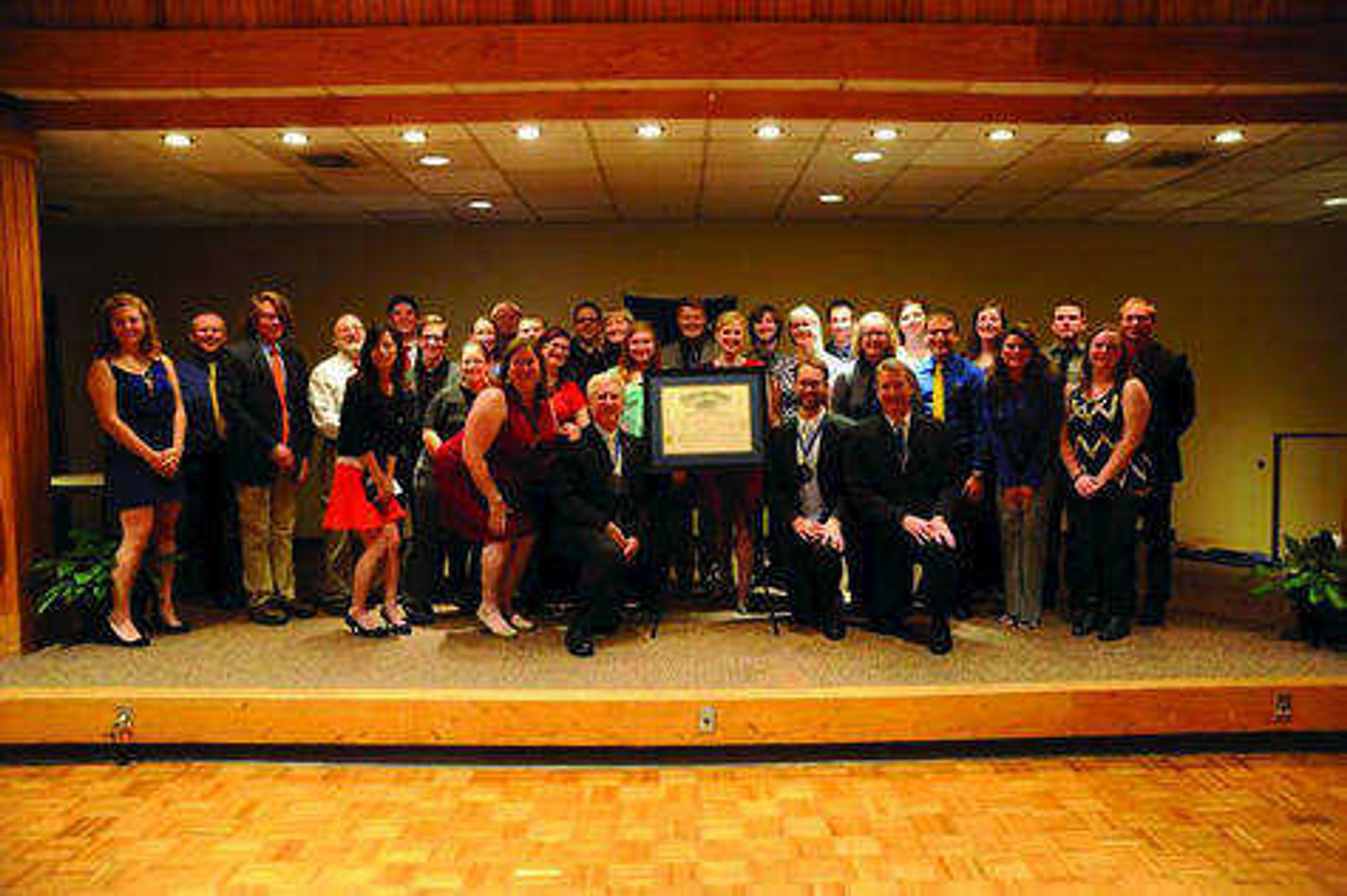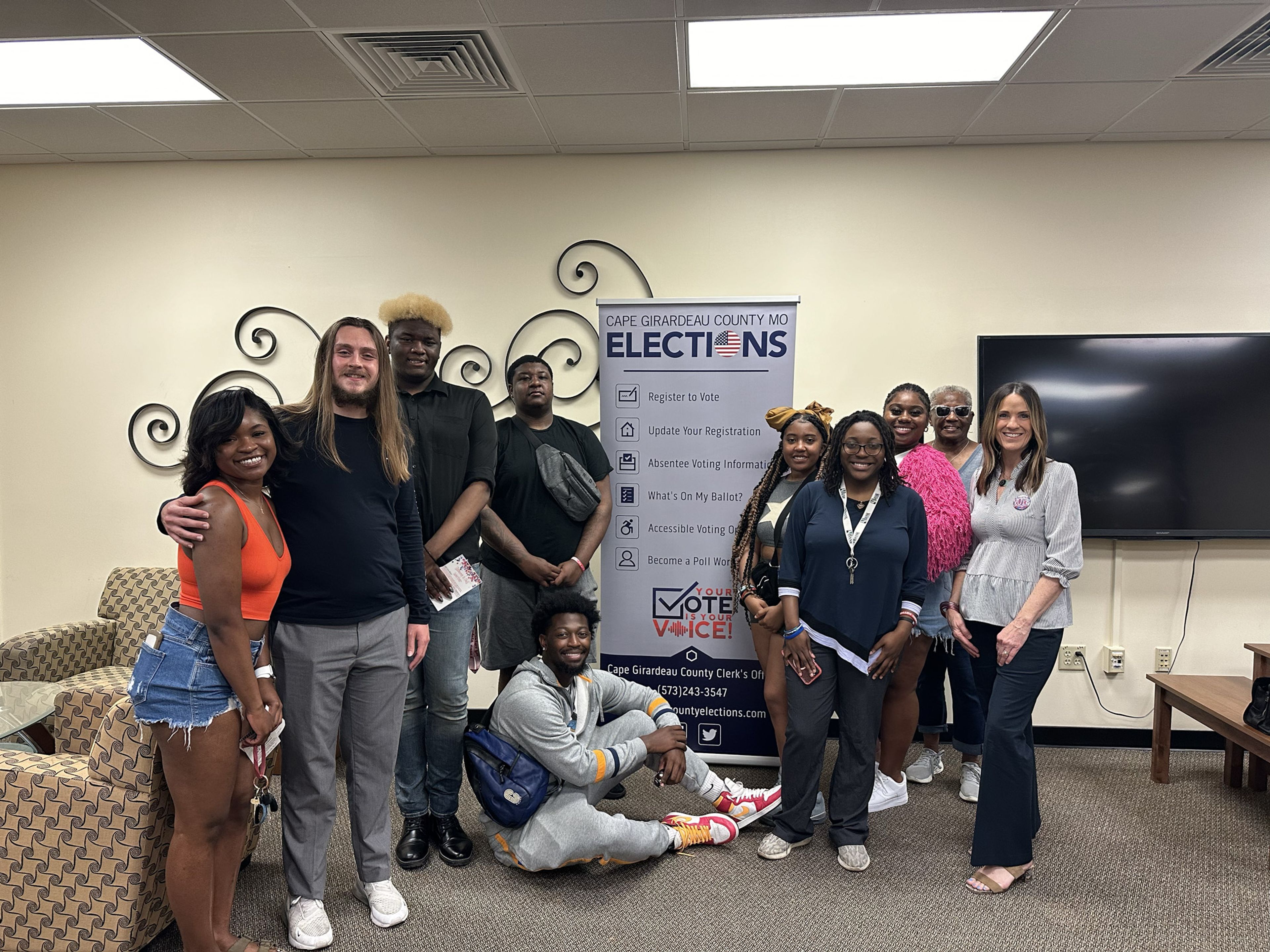The 100th chapter of Alpha Chi Sigma -- the only professional chemistry fraternity in the United States -- was founded at Southeast Missouri State University.
According to the ACS website, "a professional fraternity is a specialized fraternity that limits its membership to a specific field of professional education in accredited colleges and universities offering courses leading to recognized degrees therein."
Regan Nispel, the president of the Southeast ACS chapter who also is playfully dubbed the "Master Alchemist," lists the professional aspect of the fraternity as one of its most attractive features.
"You also get to meet people that have a similar mind as you," Nispel said. "It can be hard sometimes when joining an organization that is for everyone. In Alpha Chi Sigma, everyone is kind of the same major and understands the hardships you're going through and the classes you're going through."
Members of the fraternity do not have to be chemistry majors, but they do have to take the equivalent of the CH 185 and CH 186 courses at Southeast, said Charlotte Donaway, the vice president of ACS at Southeast.
"We are obviously about science since we are a chemistry fraternity, but we have many different majors. I am pre-dental," Donaway said.
ACS also includes members that are majoring in psychology and photography because they changed their majors, Donaway said.
The Southeast colony of ACS was founded in 2012 and became an official chapter on Oct. 25. It was actually one of the fastest of the groups to gain chapter status from the formation of the colony to the initiation into the national organization, Nispel said.
The process only takes as long as it does because the national organization wants to make sure that a colony is able to sustain itself before it can be granted chapter status, Nispel said.
"We actually do have a lot of chapters that have died and had to quit because people haven't joined, so they are either restarting or they are making sure that new colonies don't die," Nispel said.
However, "Vice Master Alchemist" Donaway believes that chapter status hinged on students going to Southern Illinois University in Carbondale, Illinois, to start the colony.
"I think the reason why it took a little while is because it was small when it started and the people that started it were students," Donaway said. "Other fraternities/sororities were brought here."
The new chapter status means that the fraternity will have more funding, as well as a right to vote in national matters as opposed to when they had to ask permission, Nispel said.
"With chapter status, we're pretty much allowed to be our own," Donaway said. "With colony status, we had to coordinate with SIUC."
ACS hosts social events so people within the science departments can connect, and they hold programs to promote science in other groups, usually involving children. ACS is currently working with Discovery Playhouse to develop some more outreach programs for children.
"We do other things, but we've helped with Girl Scouts before," Nispel said. "With science experiments, we helped them understand what science is about. Another big thing that we do is the farmer's market. We also do professional activities, meaning we meet up with each other."
Although the fraternity does socialize and is philanthropic, that is not the main focus of the organization.
"Since it is professional, it's kind of its own sect," Nispel said. "We are Greek, but we don't follow Panhellenic rules or we don't follow really social rules. We don't really have ties to either [philanthropic or social rules]."
The group is currently working on educating their pledge class of 11 people, Nispel said. Eleven pledges is substantial for this group, and Nispel said April 11 is the initiation date.





